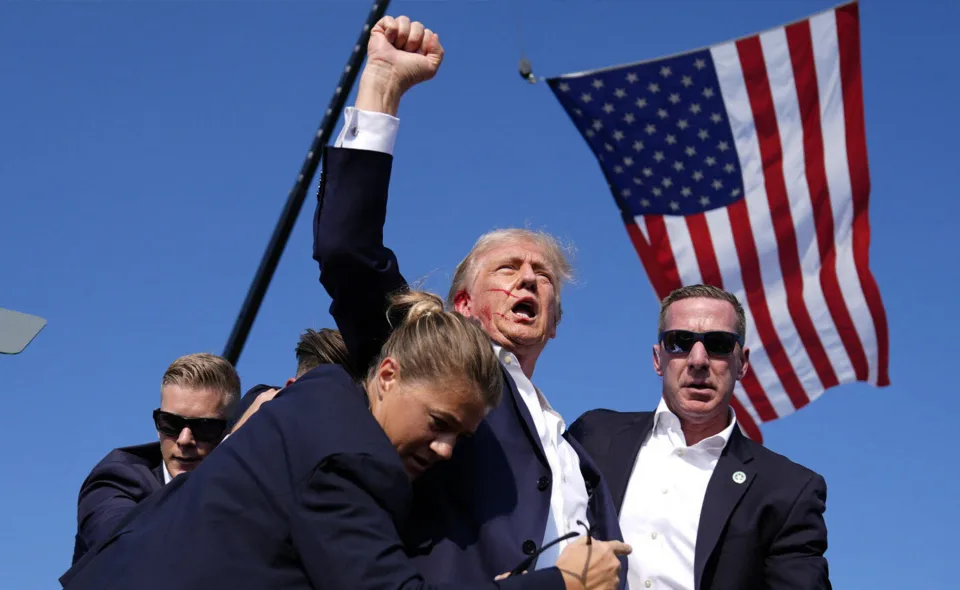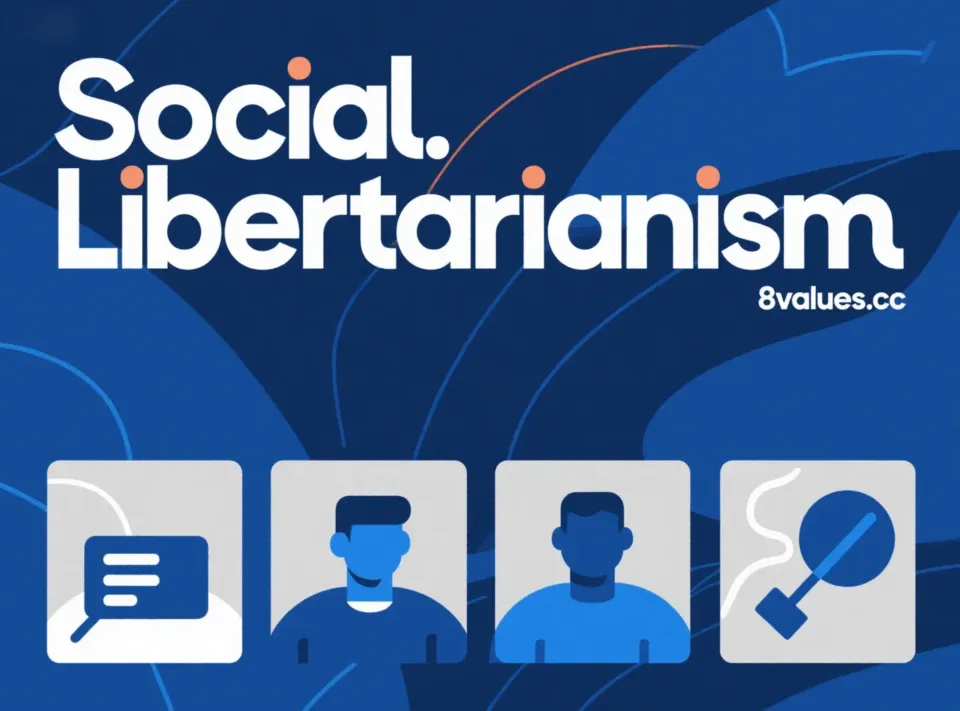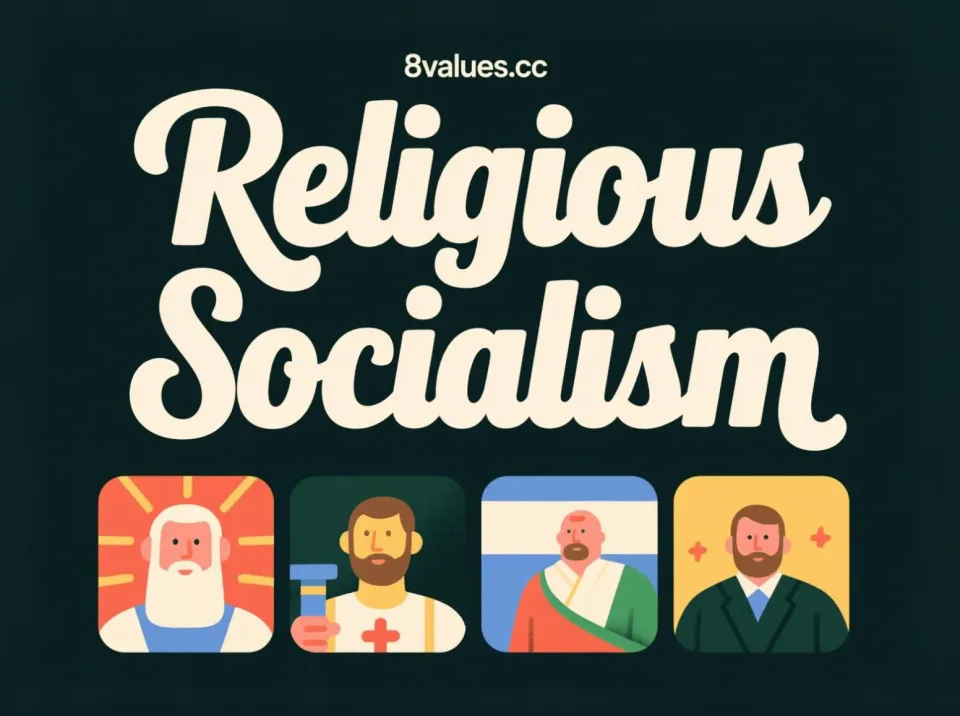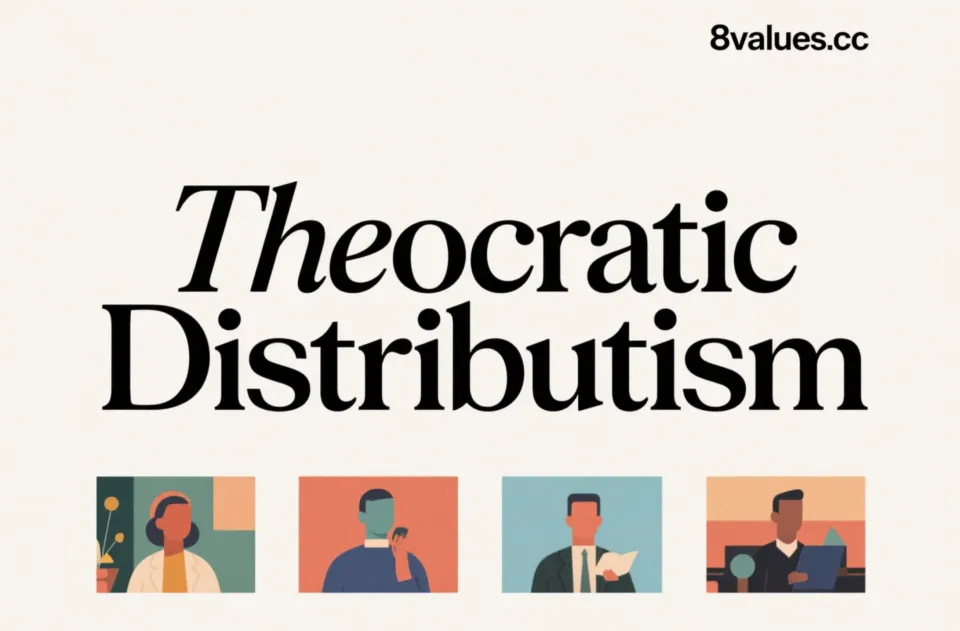Donald Trump: Business and Political History of the 45th and 47th Presidents in the United States
Donald Trump is a German-American Republican politician and entrepreneur. This article aims to objectively interpret the early experiences, business achievements, landmark policies of the 45th and 47th Presidents of the United States, and the profound impact he has caused in politics. To evaluate their political tendencies, you may wish to refer to the 8Values Political Values Prone Test.
Donald Trump was born on June 14, 1946 in New York, USA, and has German-American descent. He graduated from the Wharton School of Business at the University of Pennsylvania, integrating multiple identities such as entrepreneurs, real estate businessmen, and television workers. Trump's political career has been ups and downs, and he served as the 45th President of the United States and won the 2024 presidential election and will be sworn in as the 47th President of the United States on January 20, 2025. He is the second president in American history to be re-elected after his re-election campaign. Trump has a distinctive style of governance. He brings business war thinking and behavioral characteristics into American politics, is proficient in negotiations, and is especially good at "extreme pressure" and "project packaging".
Donald Trump's Early Years and Business Empire
Trump's family background is quite deep. His grandfather, Friedrich Trump, was from Germany and accumulated some wealth through the gold rush. Father Fred Trump used the funds to create a real estate company and, under the influence of Roosevelt's new policy, expanded the company by incorporating civilian apartments and houses.
Trump ranks fourth in the family. In his early years, he was unable to study quietly and was sent by his parents to New York Military Academy at the age of 13. During his time, he was excellent in his studies and served as a student cadre in his senior year. He then attended Fordham University in New York for two years, then transferred to the Wharton School of Pennsylvania to study for real estate, and received a bachelor's degree in economics in 1968.
After graduating from college in 1968, Trump joined the real estate company founded by his father, and took over the company in 1971, renamed it "The Trump Organization" and focused on real estate development. His investment areas have gradually expanded to extend to many industries such as casinos, shipping, sports and entertainment. Important milestones in his business career include: the successful Hyatt Hotel in 1975, receiving tax cuts and low-cost loans; the Trump Building, the headquarters of the Trump Group in Manhattan, New York, spent $200 million in 1984; and the Mar-A-Lago purchase in 1985.
However, Trump's business journey has not been smooth. In early 1990, due to the impact of the US economic recession, its personal assets fell from $1.7 billion to $500 million, and it was burdened with nearly $4 billion in debt. The "Trump Taj Mahal" casino he owned was also sentenced to bankruptcy. Under the supervision and bailout of bank groups, Trump handles debts while implementing investment plans. In 1994, he paid off his debt of up to $900 million and successfully made a comeback through measures such as transferring Trump Airlines.
Trump is keen to put his name in almost every career under his name. As of 2016, he has opened more than 500 companies in at least 25 countries around the world, with operations in Asia, South America and Europe. His personal brand and intellectual property rights (including "Trump Canned Water", "Trump Vodka," etc.) are estimated to be worth up to $3.3 billion. In March 2024, "Trump Media Technology Group" was listed on Nasdaq, and its net worth soared by nearly $5 billion, ranking among the top 400 Bloomberg's global richest list for the first time.
In addition to business, Trump has also entered the entertainment industry and has made guest appearances in super rich roles in movies and TV series many times. The reality show "Apprentice" he produced and starred in was twice accused of the Emmy Awards for Best Competitive Reality Show, and he himself has gained fame on Hollywood Walk of Fame.
From business to politics: Donald Trump's political career
Trump's party ownership has been changed many times. He first joined the Republican Party in 1987, but then switched several times between Democrats, Reforms and nonpartisans until he joined the Republican Party for the third time in 2012 and maintained his party membership.
2016 Presidential Election and Term 45
Trump officially announced his run for the 2016 U.S. presidential election as a Republican in June 2015. He attracted public attention with his controversial remarks in the early stages of the campaign. In November 2016, he eventually won the presidential election, with 306 electoral votes, defeating Democratic candidate Hillary Clinton.
On January 20, 2017, Trump was sworn in and became the 45th president of the United States. During his first term, he pursued the "America First" policy, implemented a number of major reforms in the fields of economy, trade, diplomacy, and withdrawn from multiple international organizations.
During his first term, Trump was impeached by the U.S. Congress twice, in 2019, accused of pressure on Ukraine to investigate political opponents and in 2021, accused of “inciting rebellion.” He is the first president in American history to be impeached twice. Both impeachments eventually failed in the Senate.
Re-election failure and follow-up in 2020
Trump informally announced his re-election while in office. In August 2020, he was officially nominated as presidential candidate by the Republican National Convention, competing with Democrat Joseph Biden. Although several media announced Biden’s victory in November 2020, Trump refused to admit defeat and filed a lawsuit to challenge the election results. On January 6, 2021, a congressional riot broke out in Washington in support of Trump.
2024 Presidential Election and Term 47
In November 2022, Trump announced his participation in the 2024 U.S. presidential election. Although his eligibility for the election was once controversial, the U.S. Supreme Court eventually retained his primary qualification on March 4, 2024. In July 2024, Trump officially accepted the Republican presidential nomination and selected Ohio Senator James David Vance as his running mate.
On November 6, 2024, Trump announced his victory in the presidential election and will be sworn in as the 47th President of the United States on January 20, 2025.
"America First" policy and its political measures
Trump's "America First" policy is at the heart of his ruling philosophy. This concept has influenced its decisions in various aspects such as economic, environmental, social and military.
Economic and trade
The Trump administration has taken a series of major economic measures:
- Comprehensive tax cuts : Trump signed the Tax Cuts and Jobs Act (2017) during his first term, sharply lowering the U.S. federal corporate income tax rate from 35% to 21%. He promised to continue to push for a new round of tax cuts in his second term.
- Relax financial regulation : In 2018, he signed the Economic Growth, Relaxation and Consumer Protection Act, which made the first major adjustment to the Dodd-Frank Act, relaxing regulatory requirements for banks with smaller asset sizes.
- Trade protectionism : Trump advocates trade protectionism. He adopted a tough trade policy, including imposing tariffs on imported steel and aluminum products, and promoted renegotiation or withdrawal from regional trade agreements, such as replacing the North American Free Trade Agreement (NAFTA) with the United States-Mexico-Canada Agreement (USMCA).
- Peer-to-peer tariffs : During the second term in 2025, the Trump administration announced the implementation of "peer-to-peer tariffs" aimed at setting up a 10% "minimum benchmark tariff" on trading partners and potentially impose higher tariffs. This policy has aroused dissatisfaction and legal proceedings from domestic companies in many countries and the United States.
- Energy Independence : Trump launched the "America First Energy Program" to vigorously support traditional fossil energy (oil, natural gas, coal), aiming to achieve energy self-sufficiency and lift the federal land ban on new coal mines.
Environmental and social policy
- Withdrawal from the Paris Agreement : The Trump administration announced its withdrawal from the Paris Agreement aimed at responding to climate change in 2017, and officially came into effect in 2020. The United States became the only withdrawal party at that time.
- Immigration Reform : Trump is committed to reforming immigration policies, advocating reducing the number of immigrants, raising immigration thresholds, and ordering the deportation and repatriation of undocumented immigrants. He also signed an executive order declaring a state of emergency on the southern U.S. border and implementing a promise to build a wall on the U.S.-Mexico border. In 2025, the Trump administration signed an executive order that declares that children born in the United States who illegally immigrate or hold temporary visas will no longer automatically obtain U.S. citizenship.
- Education and Equality : The Trump administration has promoted "school selection policy" and increased support for STEM education. In 2025, he proposed to end all diversity, equity, and inclusion (DEI) policies within the federal government and planned to sack the U.S. Department of Education.
- Medicare Policy : During his first term, Trump signed an executive order to try to repeal Obamacare reform plan (Affordable Care Act), but the relevant bills were blocked in Congress.
Military and Security
- Establishment of the Space Force : The Trump administration began to form the Space Force in 2018 and officially established the U.S. Space Command and Space Force in 2019, becoming the sixth branch of the U.S. armed forces.
- Overseas withdrawal : Trump has pushed for the withdrawal of troops from Afghanistan and signed an agreement with the Afghan Taliban, promising to evacuate the remaining U.S. troops within 14 months.
- Fighting terrorist organizations : The Trump administration announced that it had eliminated the extremist group "Islamic State" in Syria and Iraq, and ordered the assassination of Iran's commander Qasim Soleimani.
The Trump administration’s foreign policy and international relations (Donald Trump)
Trump's diplomatic strategy is based on "America First" and focuses on transactional and bilateral negotiations, resulting in loosening and competitive US-EU alliance relations.
Regional relations and conflicts
- US-Russia relations : Although Trump personally met with Russian President Vladimir Putin many times, the Trump administration still positioned Russia as a strategic rival and imposed sanctions. In 2025, Trump actively promoted a peaceful resolution of the Russian-Ukrainian conflict, and even proposed a tripartite meeting.
- North Korea’s nuclear issue : The Trump administration has implemented a “extreme pressure” policy on North Korea, but it also led to the first meeting between the incumbent U.S. President and North Korea’s top leader Kim Jong Un (Singapore in 2018).
- Middle East issue : The Trump administration focuses on "suppressing Iraq, supporting Iraq and supporting Saudi Arabia". He recognized Jerusalem as the capital of Israel. In 2025, he actively participated in Israel’s conflict mediation with Iran and visited Middle Eastern countries such as Saudi Arabia and Qatar, with the aim of strengthening relations.
- Indo-Pacific Strategy : The Trump administration promotes the concept of "free and open Indo-Pacific" and emphasizes military security and the pursuit of "fair and reciprocity" bilateral trade agreements.
International organizations and "exit groups"
The Trump administration has adopted a significant unilateralist approach on the international stage, and has successively announced its withdrawal or cessation of participation in multiple international organizations and agreements:
| time | content |
|---|---|
| January 2017 | Announced to withdraw from the Trans-Pacific Partnership Agreement (TPP) |
| June 2017 | Announced withdrawal from the Paris Agreement |
| May 2018 | Announced to withdraw from the Iran nuclear agreement |
| May 2020 | Announces the termination of relations with the World Health Organization (WHO) |
| January 2025 | Announces the United States to withdraw from the Paris Agreement and the World Health Organization to combat climate change |
| July 2025 | Decide the United States to withdraw from UNESCO |
Law and Controversy: The Character Events Facing Donald Trump
Trump has been accompanied by legal challenges and controversial events throughout his political career.
Impeachment, Trial and Legal Judgment
- Humiliation Fee Case : In May 2024, Trump was sentenced to 34 felony charges of forging business records in the "humiliation Fee" case. He became the first former president in American history to be convicted. Trump himself denied all the charges and claimed the lawsuit was politically motivated. On January 10, 2025, the presiding judge ruled that Trump was “unconditionally released”, meaning he had a record of conviction but was not required to be imprisoned or fined.
- Election Intervention Plan : Trump faces criminal charges for allegedly trying to overturn the results of the 2020 presidential election. In July 2024, the U.S. Supreme Court ruled that Trump enjoys immunity for "official conduct" but does not.
- Confidential Document Case : Trump has faced federal charges for being accused of improperly processing confidential documents. The case was dismissed by a federal judge in July 2024.
- Defamation and Sexual Assault : A New York jury ruled that Trump sexually assaulted and defamed writer E. Jean Carroll, ruling him to pay millions of dollars in damages and fines.
- Shooting : On July 13, 2024, Trump was attacked by a gunman while holding a campaign rally in Pennsylvania and injured his right ear. In September of the same year, he was once again suspected assassination near his golf club in Florida.
Controversies and anecdotes in the ruling system
- Twitter governs the country : During his first term, Trump frequently used Twitter (Twitter, now X) to announce policies and express opinions, and was commented by the media as "Twitter governing the country." His account was permanently banned due to the Capitol Hill riots and was later unblocked in 2022.
- Establishing the "Government Efficiency Committee" : In September 2024, Trump announced that he would establish a "Government Efficiency Committee" based on Elon Musk's recommendations to conduct a comprehensive financial and performance audit of the federal government and make recommendations for reform.
- Controversial remarks : Trump has had "war of words" with the media many times, and even established a "fake news award". He has repeatedly claimed that if he regained power, he could end the Russian-Ukrainian conflict in 24 hours, but in an exclusive interview in April 2025, he also called this statement "ironized".
Conclusion: Evaluating Donald Trump's political values
As a figure who spans business and political circles, Donald Trump's political philosophy and behavior has sparked huge discussion and reflection in the United States and even around the world. He was rated as an "extraordinary person" by Russian President Vladimir Putin, not from the American political establishment; while Global People commented that he was a "difficult political outlier", representing a surging populist trend and a profound division in American society.
His "America First" policy, whether it is promoting trade protectionism, cutting international obligations, or emphasizing domestic employment and energy independence, reflects a strong nationalist tendency. These policy choices and tendencies are key elements in analyzing their political ideology.
If you want to understand more systematically the political tendencies of Trump and his representatives and where those tendencies are in the broader political spectrum, you can try the 8Values political values tendency test . By incorporating Trump's policies (such as economic tax cuts and trade protection, conservative stances on social issues) into the test framework for analysis, it can help understand how his position is reflected on the political axis, such as biasing towards "nationalism" or "globalism" on the diplomatic axis, or biasing towards "conservative" or "progressive" on the social axis.







